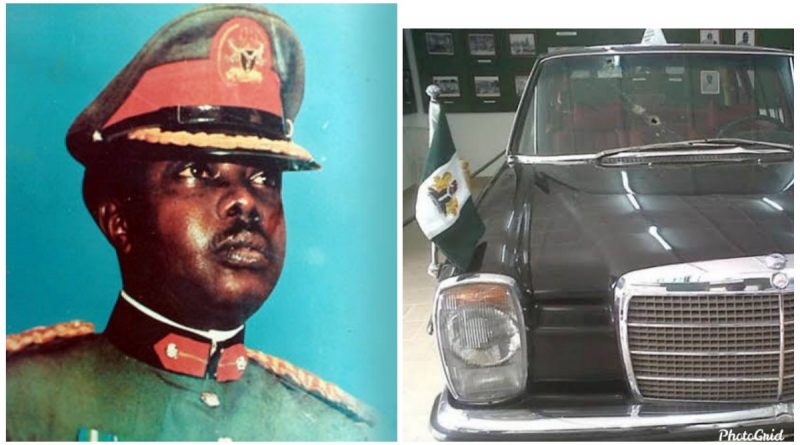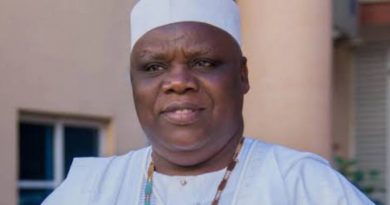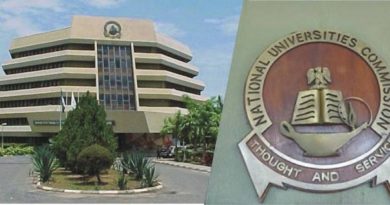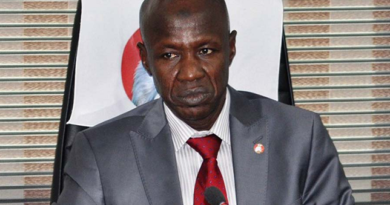Written in ABU: The famous ‘Africa has come of age’ speech by Murtala Muhammed
Murtala Muhammed is a figure that looms large in the history of Nigeria. There is an overwhelming consensus that he was an incorruptible hero that would have, given the time, rid Nigeria of the scourge of corruption that had infected the country.
His focus wasn’t just Nigeria. The commitment he showed to the liberation struggle in Angola, Mozambique, and South Africa and, to the pan African was unparalleled.
On the 3rd of January, 1976, the American Ambassador to Nigeria, Mr. Donald Easum, brought a letter addressed to the Nigerian head of state from the United States president, Gerald Ford.
The same letter was sent to many other African leaders. Murtala considered this a contemptuous gesture – an attempt by the Americans to dictate policy regarding the Angolan liberation struggle.
His federal military government took the bold and unprecedented step of releasing President Ford’s letter to the press. It also issued a strong response, calling the letter a “gross insult” and basically telling the Americans to go to hell.
This event triggered Murtala’s decision to attend the OAU conference in Addis Ababa and deliver his message to the world.
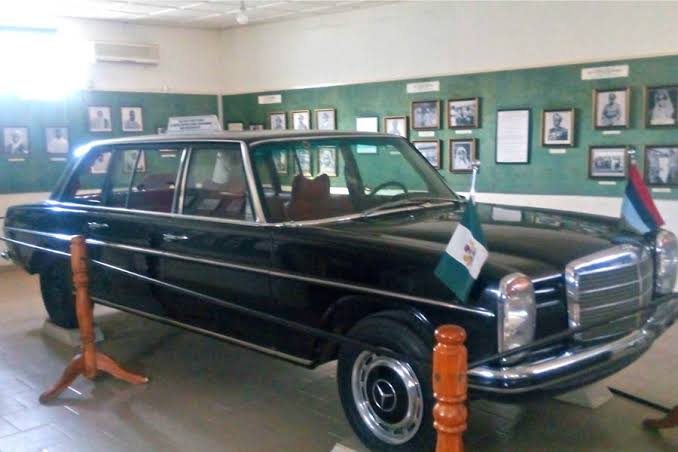
On the 11th of January, at the extraordinary summit conference of the OAU held in Addis Ababa, he gave one of the most powerful speeches ever delivered by a Nigerian leader, pulling no punches as he railed against the forces of neo-colonialism and imperialism aiming to keep Africans in poverty and strife.
In his speech, he paid special attention to the “Pretoria-Lisbon-Salisbury” axis (the governments of South Africa, Portugal, and Rhodesia) and, to the United States of America who he claimed were interested in maintaining “white supremacist minority regimes” in Africa.
Just over a month later, Murtala Muhammed was killed at the age of 37, the victim of a failed military coup. One of the leaders of the coup had accused Murtala Muhammed of, among other things, “going Communist”.
ALSO READ: Prof Patrick Wilmot: The ABU Lecturer Deported By The IBB Regime
That speech reproduced in full below was written by a lecturer at Ahmadu Bello University (ABU) Zaria, Professor Patrick F. Wilmot.
————————
AFRICA HAS COME OF AGE
Murtala Mohammed
Mr. Chairman,
It is of great historical significance that the first extraordinary session of the Assembly of Heads of State and Government to be held since the founding of the Organisation of African Unity twelve years ago, is being held on the liberation of Africa. Angola is merely the excuse being used by those who cannot reconcile themselves to the momentous victories of the forces of African nationalism, to assert their neo-colonialist ambitions on the Continent. Angola merely provides the occasion to recreate the nineteenth-century partition of Africa into spheres of influence where the predominant consideration will be the interests of the big powers without any consideration for the inalienable rights of the African. Let us, therefore, make no mistake about the problem which confronts us at this Session: it is not the question of: a simple disagreement, between Angolans requiring a simple solution in the African tradition. Rather, it is a much deeper danger of extra-African powers in collusion with the inhuman and obnoxious apartheid regime in Pretoria trying to frustrate the will of a people who, having sustained a heroic struggle against a most brutal colonialist repression, are on the threshold of a glorious dawn of national self determination. If the neo-colonialists succeed in Angola, then our hopes for South Africa, will have been dashed.
Mr. Chairman, the history of modern Africa is replete with shameless exploitation, brutalisation, repression and downright denial of the humanity of Africans. Side by side with colonialism which sought to deny self determination for the African, there has developed that unique doctrine of apartheid. As the forces of African nationalism began their assault on the bastions of colonialism in Northern, Western and Eastern Africa, the forces of exploitation turned more and more on Southern Africa to make a last ditch stand. An imaginary line beyond which Harold Macmillan’s ‘wind of change‘ would not be permitted to blow was drawn, to be sustained by the unholy alliance which came to be known as the Pretoria-Lisbon-Salisbury axis.
For years the OAU called the attention of the international community to the role of this axis in provoking a potential racial war in Southern Africa which would affect the peace and security of the entire Continent. We analysed the diabolical role of the various points in the axis and implored those whom we knew had influence to put the necessary pressure so as to minimise the unsettling effect of armed confrontation.
First, we called attention to the diabolical role of apartheid. The main elements of that criminal doctrine are too well known to this Assembly to necessitate my detailed analysis. Suffice it to say that the whole rationale behind this doctrine which the United Nations Organisation has aptly condemned as a crime against humanity is the perpetual subjugation of the African in order to create a paradise on earth for the whites. Thus the 4 million whites do not only control all the instruments of government, to the total exclusion of the 18 million Africans, they also inflict on the Africans a repression unparalleled in human history. The Africans are condemned to a life of misery. hunger. disease, in a land literally flowing with milk and honey. They are no more than tools utilised by the white man in the interest of maintaining his high standard of living: as tools they are made to work in the white man’s mines and farms to increase the white man‘s profit; as tools they are discarded and sent to pine away and die in the so—called homelands when they are no longer able to serve as beasts of burden.
Mr. Chairman. when I contemplate the evils of apartheid. my heart bleeds and I am sure the heart of every true blooded African bleeds. When we talk of these evils we are assured of the ‘sympathy’ of the Western countries, but when we call for sanctions to end this shame of Western civilisation, suddenly the glitter of gold in the form of high dividends becomes more convincing a consideration than the lives, the liberty and the well-being of Africans.
The Western Powers have bluntly refused to take any positive action either in the form of military or economic sanctions which will dissuade the regime in Pretoria from pursuing its criminal policy. Rather. they are encouraged to persist through increased investment. military collaboration and other forms of cooperation.
Little wonder therefore that the apartheid regime became so emboldened as to embark on foreign adventures outside the immediate confines of its territory. In order, to create a number of client states around itself. the Pretoria clique encouraged and sustained rebellion of the white minority in Rhodesia against Great Britain. The Unilateral Declaration of Independence by Ian Smith and his fellow conspirators marked the formal extension of apartheid northwards and pushed further South Africa against African nationalists. For not only was Southern Rhodesia showered with economic assistance by apartheid South Africa, she was defended by South African forces working in close collaboration with the Portuguese colonialists. The international community looked helpless as the implementation of United Nations sanctions against the Rhodesian rebels was frustrated by South Africa and Portugal. Moreover. some Western powers, again under the pressure of powerful economic interests in their countries joined in breaking the sanctions, not caring for the effect of their actions on African sensitivities. The most notorious example of this open collaboration for the rape of Africa was the Byrd Amendment which permitted the importation of Rhodesian chrome into the United States. Once again, African weakness was exploited by a super-power which claims worldwide responsibility. but whose actions as far as the African Continent is concerned are motivated by no more than naked economic and ideological self interest.
Having succeeded in installing a puppet regime in Salisbury, the South African regime had no qualms in exporting Apartheid into Namibia, an international territory whose trust territory status was terminated by the-United nations in 1966. Seen as another buffer zone to stem the nationalist tide from the North. Namibia became a pawn in the game of the South African racists whose grand design is a sphere of influence in Southern Africa that will embrace not only the dependent territories under the Lisbon-Pretoria-Salisbury axis but also the independent territories in the area. Were they not daring enough to raid Zambia and Tanzania under the guise of pursuing nationalist guerrilla forces?
Mr Chairman, so long as the fascist regime in Portugal was able to withstand the onslaught of nationalist forces in Mozambique and Angola, so long did the Apartheid regime and their economic backers feel secure. Thus, South Africa saw its fate intimately bound with that of the maintenance of Portuguese oppressive colonialism in these territories. However to their glory, the people of Guinea-Bissau under the PAIGC, the people of Mozambique under FRELIMO, and the people of Angola under the most active of the fighting forces, the MPLA waged a most determined struggle which ended in the collapse of the fascist regime in Lisbon. Thus not only the African in the Portuguese territories was liberated, but through the sacrifice of the African freedom fighter, the metropolitan Portuguese who had endured a most brutal and repressive regime in Lisbon, was also liberated. The new Portuguese regime, faced with the realities of the situation, took the most sensible course and one by one, formula handed power to the peoples of the former territories.
Mr Chairman, confusion and panic were naturally thrown into the ranks of the racists of Southern Africa. With the collapse of a pivotal point of the Lisbon-Pretoria-Salisbury axis apartheid was doomed to come face to face with revolutionary Africa. Part of the buffer zone having collapsed, the forces of freedom are the very doorstep of the racists and the apostles of apartheid. This is the crisis situation that has led South Africa to embark on the most daring adventure of all by blatantly sending an invading force into Angola. The intention is clear. It is to crush.the most powerful and the most nationalistic of the Liberation Movements — the MPLA. Thereafter, the South African regime hopes to install a puppet government in Angola, and then turn their attention towards fomenting trouble in Mozambique The recent attempt at rebellion in Mozambique is instructive in this connection, Mr. Chairman. We cannot pretend that we are unaware of the machinations and conspiracies against our Continent by not just the racists of South Africa but even by those who pretend to be the friends of this Continent but whose sole interest is in what they can get out of us. The present Session of our Assembly provides a unique opportunity of reassessing who the true friends of Africa are.
Naturally, because of its strategic importance in the South Atlantic, because of its natural resources and because of the strength and dynamism of the MPLA, Angola has become an area of great interest. Strategically, there are those countries. including South Africa and obviously the United States who are frightened at the emergence of a truly nationalist government who will insist on the sovereign rights of Angola to control both its territory and the sea appertaining thereto. The hope of a foreign base to police this part of the ocean is inconceivable unless puppets are installed in power. Then there is the vast natural resources with which the territory is endowed, and which had hitherto been exploited by foreigners.Under a nationalist government that insists on the sovereignty of Angola over its natural resources, there can be no guarantee of cheap Angolan raw materials and energy to fuel and sustain the factories of neo-colonialists. The alternative, therefore, is to create confusion which in turn will result in a weak regime which will be teleguided from abroad as a reward for the assistance of helping that regime to come to power. Nigeria cannot accept such degrading and humiliating conditions for a people who have not been offered independence on a platter of gold but who have had to fight hard against a regime indirectly supported by those same countries that now seek to reap where they have not sown.
Let us not forget, Mr. Chairman, that in the era of the repressive colonial regime in Angola and other Portuguese territories, the same super power that now sees red in Angola had the opportunity of building a store of goodwill for itself by espousing the cause on which its history rested. The anti-imperialist and anti-exploitation slogan which led to the American war of independence had: a relevance in the Angolan liberation struggle which should have endeared it to successive administrations in the United States. This was not to be. On the contrary, the United States Government as well as the Governments of many Western countries saw the African struggle against imperialism as directed against Western interests. As long as Africa remain dependent, it is within the orbit of NATO countries and is available for exploitation to sustain Western prosperity while the Africans sink deeper into poverty. Rather than join hands with the forces fighting for self determination and against racism and apartheid, the United States policy makers clearly decided that it was in the best interests of their country to maintain white supremacy and minority regimes in Africa. As far as we know, this is still the extant policy of the United States in Africa, an area, I may add, considered of the least priority as far as the United States, with a population of 23 million black people, is concerned. If Africa does in fact rank so low in United States concern, it becomes even more irritating that an American Administration should suddenly take upon itself to dictate to this august assembly how to settle an African problem. In the days before the opening of this Session, we witnessed a flurry of diplomatic activities on the part of the United States. Not content with its clandestine support and outpouring of arms into Angola to create confusion and bloodshed, the United States President took upon himself to instruct African Heads of State and Government, by a circular letter, to insist on the withdrawal of Soviet and Cuban advisers from Angola as a precondition for the withdrawal of South African and other military adventurers. This Constitutes a most intolerable presumption and a flagrant insult on the intelligence of African rulers.
We are all aware of the heroic role which the Soviet Union and other Socialist countries have played in the struggle of the African peoples for liberation. The Soviet Union and other Socialist countries have been our traditional suppliers of arms to resist oppression, and to fight for national liberation and human dignity. On the other hand the United States which now sheds crocodile tears over Angola has not only completely ignored the freedom fighters whom successive United States administrations branded as terrorists. she even openly supported morally and materially the fascist Portuguese Government. And we have no cause to doubt that the same successive Americans continue to support the apartheid regime of South Africa whom they see as the defender of Western interests on the African continent. How can we now be led to believe that a government with a record such as the United States has in Africa can suddenly become a defender of our interests?
It is in consideration of the unedifying role which the United States has played in the African liberation struggle that the Nigerian Federal Military Government took very strong objection to the patronising interest which President Ford suddenly developed in the Angolan situation. It should be made clear that African memory is not as short as the American Government thinks; we are intelligent enough to draw a distinction between foreign advisers from friendly countries invited by patriotic forces to assist in maintaining national sovereignty and defend territorial integrity and those racist adventurers who take upon themselves to invade Africa countries in order to undermine their independence and exercise neo-colonialist influence.
This is the crux of the Angolan question. On the one hand is the MPLA whose record in the struggle against Portuguese imperialism is impeccable and whose Government in Luanda has been recognised by 23 African countries. The Nigerian Federal Military Government being deeply convinced that the MPLA is the most dynamic, most nationalistic of all the movements representing the interests of the Angolan people, and convinced that it possesses the attributes of an effective Government, joined other African countries in according it recognition. It is the duty of this Summit Session to complete the process undertaken so far by individual Governments by unanimously according the recognition bf our Organisation to the Government of the MPLA.
On the other hand are the FNLA and UNlTA, which have forfeited their right to the leadership of the Angolan people by joining hands with neo-colonialist adventurers and racist soldiers of fortune, including the apostles of Apartheid, in a determined effort to destroy the sovereignty of Angola. After the moral and material support which Nigeria gave to the Angolan liberation struggle, the Federal Military Government cannot support any movement that seeks to hand the fruit ofAngolan, indeed African labour, to the enemies of Angola and Africa. It is a mark of the disrepute in which the FNLA/UNITA front has thrown themselves by their unpatriotic association with the notorious subverters of African independence and the band of racists in Pretoria, that no African country has accorded them recognition.
Mr. Chairman. the Angolan situation is not unique in the stormy history of our Continent — a history which is mostly the making of outsiders. There is hardly any of our countries which, having emerged from colonialism to independence has not been subjected to subversion and other covert activities to promote instability. Such a situation of political chaos helps to keep our countries weak and underdeveloped to the delight of the neo-colonialist who can always point to the inability of the Africans to rule themselves much less rule the white minorities in Southern Africa. Yet, we know that peace is the most vital pre-requisite for orderly development. As long as the neo-colonialists who pretend to be our friends succeed to set one section against another, they ensure thereby our continued dependence on them. We spend our meagre resources in maintaining and order, often to the advantage of the military industrial complexes in the so-called developed world. The gap between them and us then grows even wider, we become even weaker and create greater conditions for the interference of the developed countries in our domestic affairs.
Another recent development has further heightened the danger of conscious sabotage of our independence by foreign powers. The monetary crisis has highlighted the vulnerability of the economies of the developed countries and the extent to which their prosperity has been built on our poverty. The lower the prices we were paid for our natural resources the higher the prices we have had to pay for the manufactures made out of the same natural resources purchased from us: The result of the world economic crisis has forced the developed countries to face the realities of the interdependence of the world economy rather than the erstwhile presumption by them that they sustained the world economy by themselves.The collapse of many supposedly buoyant economies has led to reactions which even found expression in threats to physically attack some developing countries to force down the price of their raw materials. Neither Europe nor America can endure a drop in its standards of living. But rather than make the necessary adjustments, it appears some developed countries cast around neo-colonialist eyes and once again long for the recolonisation of that Continent which is still endowed with much of the world’s untapped resources. The new weapon is no longer the Bible and the flag, but destabilisation and armaments. Africa, Mr.Chairman, should show its awareness of this new danger and see the Angolan situation not as an isolated affair but as part of the greater danger.
In the circumstance, Mr. Chairman. this Assembly has before it a clear choice. It should endorse the MPLA as the only Government of Angola and invite its President, Dr. Agostinho Neto to take his place of honour among us. The Assembly should call upon the FNLA and UNITA to dissociate themselves from South Africa and lay down their arms and the OAU should use its good offices in consultation with the Angolan Government to effect national reconciliation of all the people of the country. This step is not without precedent. Nigeria recalls with tremendous pride and satisfaction the noble role which this Organisation plays during our crisis. The effectiveness of the role of the OAU rested on three key factors:
First the insistence on non-interference by foreign powers. Secondly, the firm recognition of the Nigerian Federal Government as the only Government in the country. Thirdly, the close collaboration between the OAU Commission and the Nigerian Federal Government.
The easy and unprecedented reconciliation which has marked developments in Nigeria since 1970 is as much a tribute to the enlightened policy of the Nigerian Federal Military Government as it is a justification of the sensible approach to the OAU to the crisis. It is worth recalling that those who are now seeking to dictate a solution on Angola to the OAU were the same ‘do-gooders’ and self appointed keepers of the moral conscience of the world who condemned the OAU resolutions of 1967 and 1968 on Nigeria. They were proved wrong in Nigeria, they will be proved equally wrong on Angola.
Mr. Chairman, Africa has Come of age. It is no longer under the orbit of any extra continental power. It should no longer take orders from any country, however powerful. The fortunes of Africa are in out hands to make or mar. For too long have we been kicked around: for too long have we been treated like adolescents who cannot discern their interests and act accordingly. For too long has it been presumed that the African needs outside ‘experts’ to tell him who are his friends and who are his enemies. The time has come when we should make it clear that we can decide for ourselves; that we know our own interests and how to protect those interest; that we are capable of resolving African problems without presumptuous lessons in ideological dangers which, more often than not, have no relevance for us, nor for the problem at hand. Nigeria has come to this Assembly determined to co-operate with you, Mr.Chairman, and with all member States to put a stop to foreign interference in our Continental matters. As an African nationalist of distinction, I trust that your wise guidance will direct our deliberations to fruitful conclusions of which our peoples will be proud. –
I thank you.
-SPEECH BY HIS EXCELLENCY, GENERAL MURTALA MUHAMMED, HEAD OF THE FEDERAL MILITARY GOVERNMENT, COMMANDER-IN-CHIEF OF THE NIGERIAN ARMED FORCES AT THE EXTRAORDINARY SUMMIT CONFERENCE OF THE OAU HELD IN ADDIS ABABA ON SUNDAY. 11 JANUARY I976.
Source: Patrick F. Wilmot, Ideology and national consciousness, Ibadan: Lantern Books 1980.
For Advert Placement, Sponsorship, support, Article submission, suggestion, etc, Contact us: info@theabusites.com, +2349015751816 (WhatsApp)

